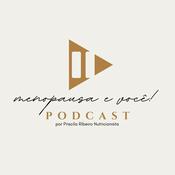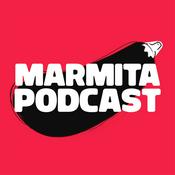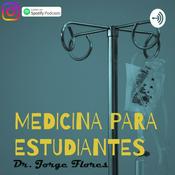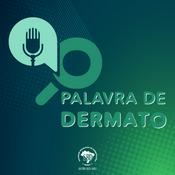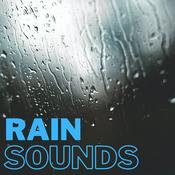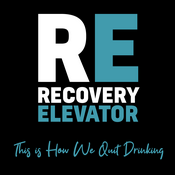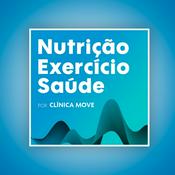60 episódios
- Medical device pharmacovigilance is complicated. Alongside clinical safety, there are technology risks, from cybersecurity threats to outdated software, that can leave patients vulnerable.
In this two-part episode, Omar Aimer, president of ISoP and former co-lead of the Medical Device Safety Special Interest Group, discusses the challenges with medical device safety monitoring and what needs to change to keep patients safe.
Tune in to find out:
What defines a medical device and how prevalent they are in our society
Why device safety monitoring is different from medicines and vaccines, and where current surveillance still falls short
How global initiatives aim to strengthen safety monitoring standards
Want to know more?
If you would like to learn more on the status and suggestions for future improvements in medical device safety monitoring, Omar has recently published a paper on the topic in the journal Drug Safety, as well as an article for Uppsala Reports.
Much like any other market, AI/ML are fast infiltrating the medical device field, and may require tailored frameworks for effective safety monitoring, as discussed by Babic et al. in their Nature paper.
Founded in 2018, ISoP’s Medical Device Safety Special Interest Group works to develop “best practices and policy in the field of medical device performance monitoring and safety surveillance”.
Join the conversation on social media
Follow us on Facebook, LinkedIn, X, or Bluesky and share your thoughts about the show with the hashtag #DrugSafetyMatters.
Got a story to share?
We’re always looking for new content and interesting people to interview. If you have a great idea for a show, get in touch!
About UMC
Read more about Uppsala Monitoring Centre and how we promote safer use of medicines and vaccines for everyone everywhere. - This special episode was recorded just before the 43rd Annual Meeting of the WHO Programme for International Drug Monitoring wrapped up in Cairo, Egypt. Held from 27 to 29 October 2025, the meeting brought together representatives from more than 80 member states, along with senior experts and regulatory leaders from WHO headquarters and regional offices. Discussions focused on strengthening pharmacovigilance for women of childbearing age and children, in light of WHO’s newly finalised Global Smart Pharmacovigilance Strategy.
In this episode, you’ll hear an abridged interview with Shanthi Pal, WHO Pharmacovigilance Team Lead, as she unpacks the new strategy and what it means for countries.
Want to know more?
Read WHO’s “Global smart pharmacovigilance strategy” (Geneva: World Health Organization; 2025).
Explore WHO’s work on pharmacovigilance through the Programme for International Drug Monitoring (PIDM) and the WHO Pharmacovigilance Team.
Learn more about regulatory systems strengthening and the WHO Global Benchmarking Tool (GBT) for medicines and vaccines.
Discover the WHO network for regulatory systems strengthening – the Coalition of Interested Parties (CIP), of which UMC is a member.
Visit the UMC website to find out more about the WHO PIDM and UMC’s role in it.
Join the conversation on social media
Follow us on Facebook, LinkedIn, X, or Bluesky and share your thoughts about the show with the hashtag #DrugSafetyMatters.
Got a story to share?
We’re always looking for new content and interesting people to interview. If you have a great idea for a show, get in touch!
About UMC
Read more about Uppsala Monitoring Centre and how we promote safer use of medicines and vaccines for everyone everywhere. #41 How to use artificial intelligence in pharmacovigilance, part 2 – Niklas Norén
21/11/2025 | 29minFar from a future add-on, artificial intelligence is already embedded in the cycle of drug safety, from case processing to signal detection. Versatile generative AI models have raised the bar of possibilities but also increased the stakes. How do we use them without losing trust and where do we set the limits?
In this two-part episode, Niklas Norén, head of Research at Uppsala Monitoring Centre, unpacks how artificial intelligence can add value to pharmacovigilance and where it should – or shouldn’t – go next.
Tune in to find out:
How to keep up with rapid developments in AI technology
Why model and performance transparency both matter
How to protect sensitive patient data when using AI
Want to know more?
Listen to the first part of the interview here.
The CIOMS Working Group XIV published its recommendations for the use of AI in pharmacovigilance in December 2025.
Earlier this year, the World Health Organization issued guidance on large multi-modal models – a type of generative AI – when used in healthcare.
Niklas has spoken extensively on the potential and risks of AI in pharmacovigilance, including in this presentation at the University of Verona and in this Uppsala Reports article.
Other recent UMC publications cited in the interview or relevant to the topic include:
a pre-print on the revised vigiMatch algorithm for duplicate detection
an article on the pitfalls of disproportionality analysis
a pre-print on critically appraising AI applications for rare-event recognition
For more on the ‘black box’ issue and maintaining trust in AI, revisit this interview with GSK’s Michael Glaser from the Drug Safety Matters archive.
Join the conversation on social media
Follow us on Facebook, LinkedIn, X, or Bluesky and share your thoughts about the show with the hashtag #DrugSafetyMatters.
Got a story to share?
We’re always looking for new content and interesting people to interview. If you have a great idea for a show, get in touch!
About UMC
Read more about Uppsala Monitoring Centre and how we promote safer use of medicines and vaccines for everyone everywhere.#40 How to use artificial intelligence in pharmacovigilance, part 1 – Niklas Norén
17/10/2025 | 29minFar from a future add-on, artificial intelligence is already embedded in the cycle of drug safety, from case processing to signal detection. Versatile generative AI models have raised the bar of possibilities, but they have also increased the stakes. How do we use them without losing trust and where do we set the limits?
In this two-part episode, Niklas Norén, head of Research at Uppsala Monitoring Centre, unpacks how artificial intelligence can add value to pharmacovigilance and where it should – or shouldn’t – go next.
Tune in to find out:
Why pharmacovigilance needs specific AI guidelines
How a risk-based approach to AI regulation works
Where in the PV cycle is human oversight most needed
Want to know more?
Listen to the second part of the interview here.
The CIOMS Working Group XIV published its recommendations for the use of AI in pharmacovigilance in December 2025.
Earlier this year, the World Health Organization issued guidance on large multi-modal models – a type of generative AI – when used in healthcare.
Niklas has spoken extensively on the potential and risks of AI in pharmacovigilance, including in this presentation at the University of Verona and in this Uppsala Reports article. His favourite definition of AI remains the one proposed by Jeffrey Aronson in Drug Safety.
For more on maintaining trust in AI, revisit this interview with GSK’s Michael Glaser from the Drug Safety Matters archive.
The AI methods developed by UMC and cited in the interview include:
vigiMatch for duplicate detection
vigiGroup for clustering
vigiRank for signal detection
vigiGrade for case report completeness scoring
WHODrug Koda for automated coding
Join the conversation on social media
Follow us on Facebook, LinkedIn, X, or Bluesky and share your thoughts about the show with the hashtag #DrugSafetyMatters.
Got a story to share?
We’re always looking for new content and interesting people to interview. If you have a great idea for a show, get in touch!
About UMC
Read more about Uppsala Monitoring Centre and how we promote safer use of medicines and vaccines for everyone everywhere.- Children deserve the safest possible healthcare, yet they remain one of the most vulnerable patient populations when it comes to medicines safety. Ahead of World Patient Safety Day on 17 September, we discuss challenges and solutions in paediatric pharmacovigilance with ISoP president Angela Caro-Rojas.
Tune in to find out:
Why we need a Patient Safety Day
How to prevent common medication errors in children
How to build child-friendly healthcare environments
Want to know more?
Visit the World Health Organization’s campaign website to learn more about World Patient Safety Day and download campaign materials.
You can also show support for the campaign by joining ISoP's free virtual event on September 18 and 19, or visit ISoP's YouTube channel to access recordings from previous Patient Safety Day events.
For more on paediatric pharmacovigilance and ISoP’s activities, check out these episodes from the Drug Safety Matters archive:
The KIDs List
What’s trending in pharmacovigilance?
Join the conversation on social media
Follow us on Facebook, LinkedIn, X, or Bluesky and share your thoughts about the show with the hashtag #DrugSafetyMatters.
Got a story to share?
We’re always looking for new content and interesting people to interview. If you have a great idea for a show, get in touch!
About UMC
Read more about Uppsala Monitoring Centre and how we promote safer use of medicines and vaccines for everyone everywhere.
Mais podcasts de Saúde e fitness
Podcasts em tendência em Saúde e fitness
Sobre Drug Safety Matters
Drug Safety Matters brings you the best stories from the world of pharmacovigilance. Through in-depth interviews with our guests, we cover new research and trends, and explore the most pressing issues in medicines safety today. Produced by Uppsala Monitoring Centre, the WHO Collaborating Centre for International Drug Monitoring. The views and opinions expressed in the podcast are those of the hosts and guests respectively and, unless otherwise stated, do not represent the position of any institution to which they are affiliated.
Site de podcastOuça Drug Safety Matters, Sereno - Meditação e Relaxamento e muitos outros podcasts de todo o mundo com o aplicativo o radio.net
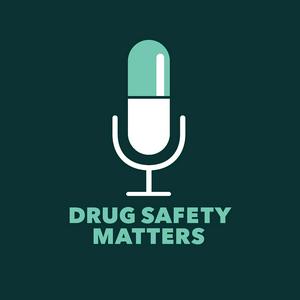
Obtenha o aplicativo gratuito radio.net
- Guardar rádios e podcasts favoritos
- Transmissão via Wi-Fi ou Bluetooth
- Carplay & Android Audo compatìvel
- E ainda mais funções
Obtenha o aplicativo gratuito radio.net
- Guardar rádios e podcasts favoritos
- Transmissão via Wi-Fi ou Bluetooth
- Carplay & Android Audo compatìvel
- E ainda mais funções


Drug Safety Matters
Leia o código,
baixe o aplicativo,
ouça.
baixe o aplicativo,
ouça.












